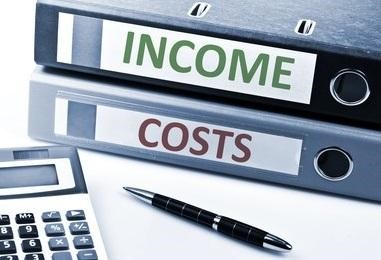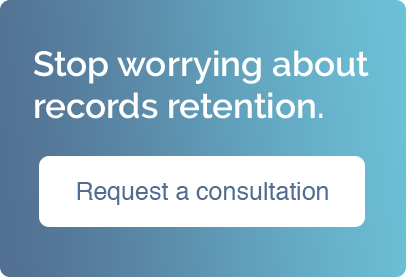7 Tips to Help with Business Financial Record Keeping

One of the most important records to keep, especially for small business is that of their financial records. In reality, most startup companies and small business owners often neglect this aspect of their business record keeping, either because they aren’t sure how to do it correctly, or they simply have a hard time finding the necessary time required to accomplish it. A lot of business owners figure that they will save some money by doing it themselves, as they think hiring a professional to help them is going to be too expensive. Unfortunately, this mentality can cause problems later on, as legal record requirements dictate that businesses are required to maintain accurate and timely records.
The easiest way to keep and maintain your businesses financial records is through the use of a good accounting software. Get your records organized and implemented in an accounting software when first starting your business. Below are 7 other tips that can help reduce the stress of financial record keeping, and help to make the task easier.
1. Establish Business Bank Accounts
A business must be distinguishable from the owners, and the easiest way to accomplish this is to establish bank accounts specifically for the business. Not only does this allow for the business to be distinguishable from the owners, it also separates business activities and expenses from personal ones. A business bank account allows for you to easily track business income and expenses.
2. Avoid Using Cash
Spending cash without the proper documentation makes it especially difficult for business owners to keep and maintain proper business financial records. It is easy to forget how and where cash was spent without the proper documentation. It is recommended to use a credit or debit card, or check instead of cash as there is a paper trail to follow and this practice will help to keep track of expenses. When you use cash instead of other methods of payment, you could also potentially be missing out on taking advantage of write-offs, as there is no documented proof. If you need to use cash, pull money out of the ATM and make a note on the receipt as to the purpose of the withdrawal.
3. Schedule a Specific Time Each Week
If you are going to be keeping and maintaining your businesses records, be sure to schedule a specific time each week you can devote to keeping your records current. Take some time each week to review your income and expenses, and manage your accounts receivable and payable. Establishing a set schedule will help to ensure that you stay on top of your financial record, and will give you the necessary overview of how your business is doing, and allows for you to control your cash flow.
4. Purchase the Right Accounting Software
Purchase the right accounting software that will be the most beneficial for your business. If you are not sure what software you should purchase, consult with your accountant who will be able to provide you with professional advice. Purchasing an online software allows for you to be able to access your accounting information anywhere you have an internet connection. This also makes it easier for your accountant to access your files. An online program will continually backup your files to a cloud based storage, but it is still recommended that business owners maintain a hard copy as well. With a desktop accounting program, you’ll need to get into the habit of regularly backing up your files to ensure no data is lost. Additionally, you’ll have the upfront cost of purchasing the program along with continual upgrades to maintain the program.
5. Tax Obligations
Keeping and maintaining accurate accounting records means that you are able to meet all of your tax obligations and regular filing requirements without having to worry about paying a penalty or interest for a missed or late payment. In order to support the claims, you are making, you will need to keep records and receipts for all acquisitions for your expenses. If you have employees on your payroll, you’re required to enroll for payroll tax, also known as Pay As You Earn (PAYE), and remit on a monthly basis. For business that deals in vatable good, having good accounting records will help immensely in filing your monthly Value Added Tax (VAT) tax returns. This is where having a reliable accounting software proves to be valuable, as all of this required information will be available to you through your program; helping you to streamline and automate your business processes and helping you to stay compliant.
6. Keep a Complete Record of Accounting Documents
In accordance with legal record requirements, businesses are required to keep accounting records; not only is it enough to keep the records they must be sufficient to show and explain the businesses transactions. In the accounting records for your business your records must contain: a record of all the assets and liabilities of the company, and entries from day to day of all sums of money received and expended by the company, and the matters of which the receipt and expenditure took place.
In addition, businesses are required to keep and make accessible upon request the following documents:
- Invoices and receipts you provide for sales or services provided by your business
- Invoices for goods, services or other business purchases for your business
- Bank account statements
- Credit card statements
- Business tax return documents
- All financial statements, including profit and loss statements, and balance sheets
- Records of payments made to employees plus payroll source deductions submitted on behalf of employees
- Records of stock purchases at the end of the financial year and asset register
The law requires that businesses keep all accounting records for a minimum of 6 years.
7. Invest in an Experienced Bookkeeper
As your business begins to grow, you might want to think about investing in an experienced, and trained bookkeeper. There are a few benefits to hiring a bookkeeper to assist with your record keeping, first it is a business tax deduction. Secondly, without having to worry about keeping your business records, you’ll have the time to focus on growing your business while knowing that your records will remain up to date.

